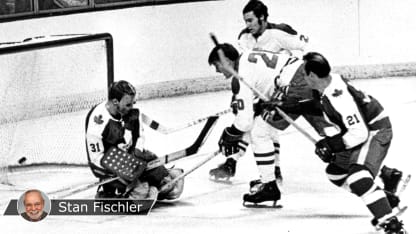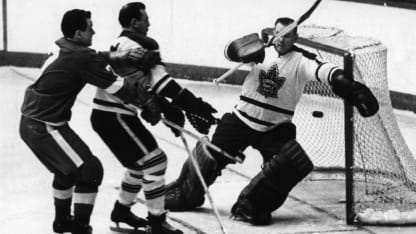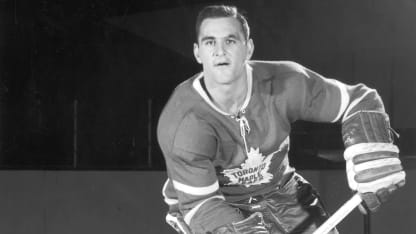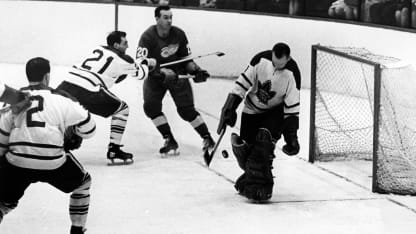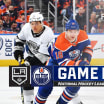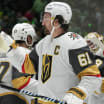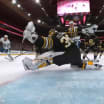That included Toronto's pursuit of its second NHL dynasty, as well as what future Hockey Hall of Famer Andy Bathgate would describe as one of the greatest displays of heroism he'd ever seen.
The NHL's first dynasty -- three straight Stanley Cup championships -- was orchestrated by cool, calm and collected Toronto coach Clarence "Hap" Day, who guided the Maple Leafs to the Cup in 1947, '48 and '49. In the early 1960s, Toronto's irascible general manager-coach Punch Imlach pulled it off in a most extraordinary manner.
Hard-hitting defenseman Bob Baun had a broken ankle. Though he never finished with more than eight goals or 21 points in a season, Baun scored a series-saving goal for the Maple Leafs despite the injury.
Imlach had to zigzag around plenty of Stanley Cup Playoff potholes before Baun could skate into position for the biggest goal of his 964-game NHL career. One problem was constant harassment from his boss, Stafford Smythe, who needled Imlach at every turn, win or lose. Not that cantankerous Imlach couldn't handle it; he had become a master of the verbal counterattack.
"Something I know for [darn] sure," he told Smythe, "is that if I changed my way of coaching and managing every time someone said I was doing something wrong, I'd never know what I was doing, and neither would anyone else."
Imlach had a lot more challenges with the Maple Leafs, who set their sights on a three-peat in 1963-64. They included slumps by future Hall of Fame forwards Red Kelly and Frank Mahovlich, as well as superior second-liners Bob Nevin and Dick Duff.
"I came more and more convinced that we weren't going to win a third straight Stanley Cup, or even come close, unless I shook up the hockey club," Imlach said. "I had to do something right at the core of the team to get these guys going again. That's when I thought about a trade I'd been trying for years: to get Andy Bathgate from [the] New York [Rangers]."
